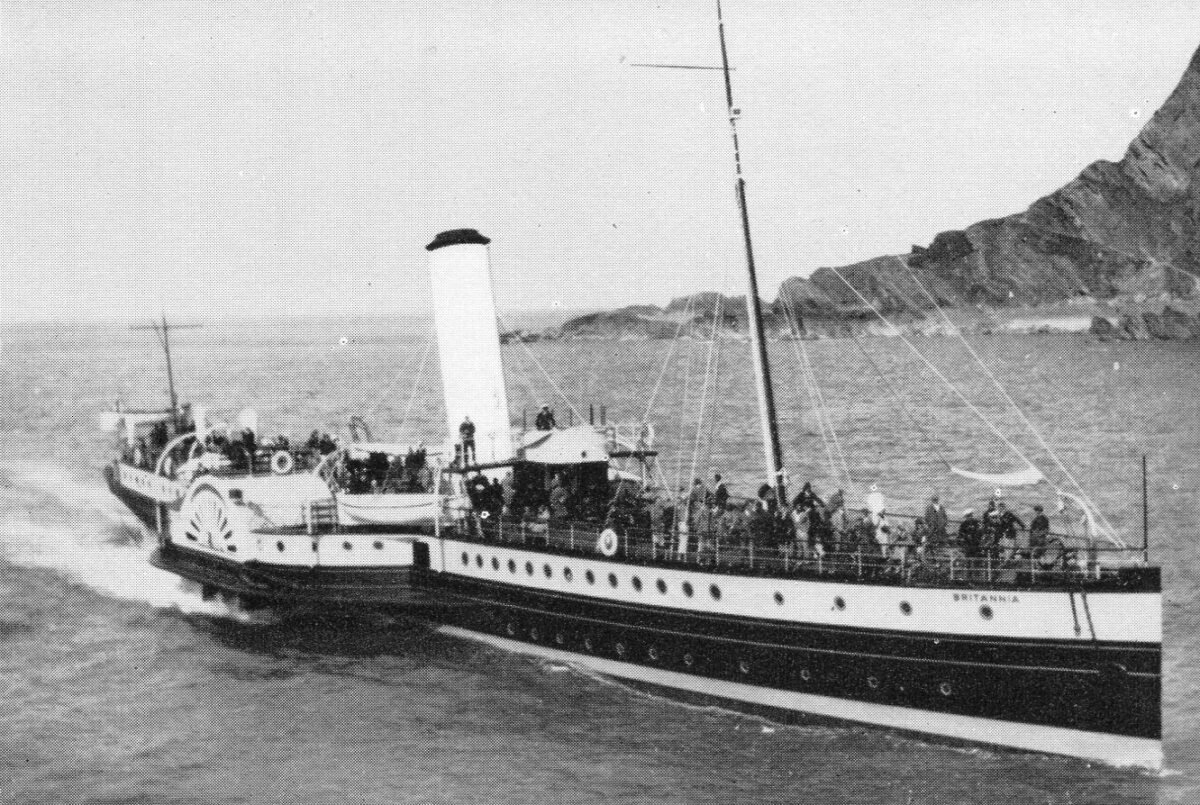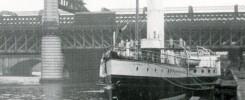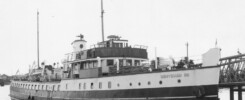
On Sunday 21st December 1919 Britannia was on passage from the Clyde down the Irish Sea and on up channel to Bristol.
Having left Troon at 6.20pm the previous evening she passed Corsewall Point at 9pm, was off the Isle of Man around 4am and as dawn broke passed Bardsey Island off the Snowdonia Peninsula at 8.20am. She was off St Anne’s Head at the south west corner of Wales at 2.10pm, passed Mumbles at 5.05pm and came to anchor in the roadstead off Penarth at 9.15pm.
The log describes the wind as cold and strong from the northwest giving a heavy sea. It also records that the coal loaded at Troon was “bad” and that the stokers had difficulty keeping the boiler pressure above 60/80 lbs per square inch. That is not altogether surprising. In the aftermath of the First World War coal was in short supply worldwide with the situation not helped in Britain by industrial unrest in the coal mines and elsewhere around the country.
The following morning, Monday 22nd December 1919 Britannia weighed anchor in the dark at 5.30am to catch the tide up the Avon to Bristol where she arrived, still in the dark, at 7am.
After her first summer back on her old schedule running down Channel to Ilfracombe and beyond, Britannia returned to Glasgow in October 1920 to have a new boiler fitted by A & J Inglis.
Kingswear Castle returned to service in 2023 after the first part of a major rebuild which is designed to set her up for the next 25 years running on the River Dart. The Paddle Steamer Kingswear Castle Trust is now fund raising for the second phase of the rebuild. You can read more about the rebuilds and how you can help if you can here.
John Megoran
This article was first published on 21st December 2020.


